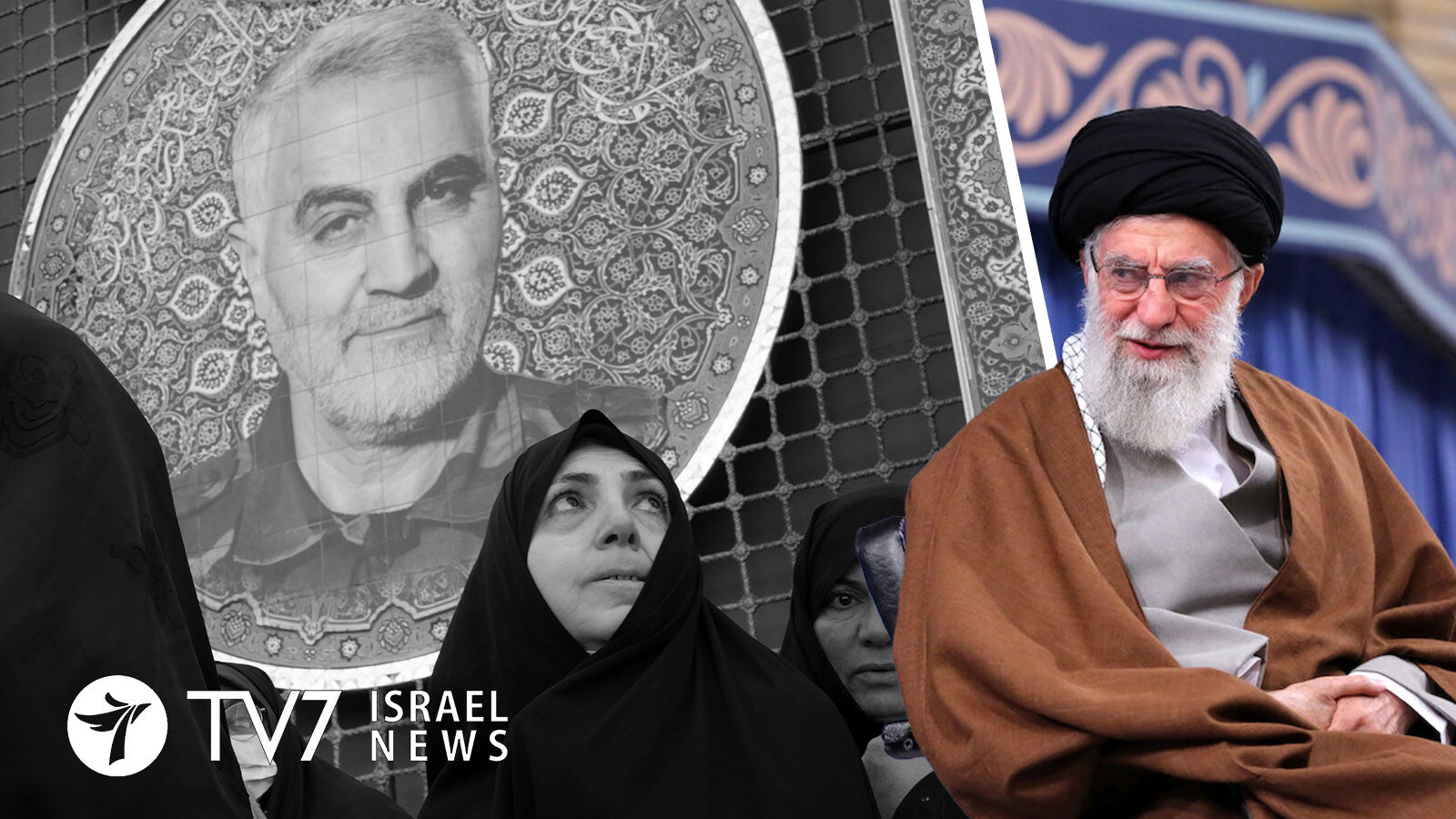Iranian Major-General Qassem Soleimani was assassinated in a January 2020 United States airstrike near the Baghdad International Airport to prevent what top defense officials said was an “imminent attack” that would have endangered Americans in the Middle East.
By Erin Viner
As commander of the elite Quds Force of the Islamic Revolutionary Guards Corps (IRGC), Soleimani had been the second most powerful man in Iran after only Supreme Leader Ayatollah Ali Khamenei. Washington has designated the Quds Force as a Foreign Terrorist Organization. Also killed in the US drone strike was Abu Mahdi al-Muhandis, the Deputy Commander of the Iran-backed Iraqi organization of insurgent militias known as the Popular Mobilization Forces (PMF).
Long considered an arch-terrorist, Soleimani is helped to arm, train, and lead armed groups across the region – including Iran’s terrorist proxies in Iraq, Lebanon, Syria and Yemen, as well as Palestinian terrorist organizations in the West Bank and Gaza.
Iranian leaders have previously asserted that in addition to the US, its arch-foe Israel also bears responsibility for the assassination.
During a meeting with members of the Soleimani family and the officials of this year’s numerous commemoration ceremonies, Ayatollah Ali Khamenei declared, “By strengthening the physical, spiritual and mental aspects of the Resistance, the General preserved, equipped and revived this everlasting and growing phenomenon against the Zionist regime and the influence of the US and other arrogant countries.”
Iranian President Ebrahim Raisi reiterated vows to avenge Soleimani’s death during a mass ceremony held at the mausoleum of the late founder of the Islamic Republic Ayatollah Ruhollah Khomeini in Tehran.
“The Americans should know that we will not pass over the blood of Martyr Soleimani,” Raisi said as cited by state media, adding, “Allow me to announce on behalf of all of you that we have not forgotten the blood of Martyr Soleimani and will not do so, and they should know that revenge for the blood of Martyr Soleimani is certain, and we will not let the assassins and perpetrators have a restful sleep.”
Addressing remarks to the US and his nation’s other perceived enemies, the hardline Iranian leader stated, “Just as General Soleimani stood up against your tyranny, excessive demands, domination and arrogance, and created resistance in the region, our beloved youths will stand today against you until the end in the shadow of the high spirit of Martyr Soleimani.”
Iran’s Permanent Representative to the United Nations Amir Saeid Iravani sent a letter to Secretary-General Antonio Guterres demanding perpetrators of Soleimani’s death be brought to account for what he said constituted “an act of terrorism,” while repeating the claim that “the Israeli regime was also involved in such a heinous crime.”
In an immediate response to Soleimani’s killing, Iran fired a barrage of missiles at US bases in Iraq, which resulted in the injury but no fatalities among the American forces. This past Monday, the identities of 51 Americans accused of involvement in the assassination were published in Iran’s state-linked Jam Jam newspaper, threatening that they are “under the shadow of retaliation.” Both current and former senior US military and civilian officials were named on the roster.
In an address to the first international conference on “Martyr Soleimani’s School of Thought” in Tehran earlier today, Iranian Parliamentary Speaker Mohammad Baqer Qalibaf told those gathered that said the late commander helped Muslims regain self-respect by confronting the US and Israel.
“He believed that any drawback in the face of the criminal United States and the Zionist regime, under the false illusion that they might give up on us, would be a fairly gross miscalculation. Oppression and injustice are in their nature, and we will continue to fight oppressors and defend the oppressed,” said the speaker.
Millions of people in the Islamic Republic and across the world marked “the third martyrdom anniversary” of Soleimani’s death, reported Iran’s state-owned Press TV. The Ayatollah regime made its best effort to rally supporters in mourning amid months of bloody anti-government protests.
Iraq’s armed Popular Mobilization Forces and its affiliates reportedly staged a number of anti-US ralles in Baghdad, Basra, the Saladin and other provinces, where a public holiday was declared to facilitate attendance by public servants.
Other protests were held as far away as Africa, where the Islamic Movement of Nigeria held rallies in Abuja where the US flag was set on fire.
The leader of the Iranian proxy, the Lebanon-based Hezbollah terror organization, also broadcast a fiery address to supporters, referring to Soleimani as the “Master of Resistance Axis martyrs.”
“Hajj Qassem was able, through his brainpower, planning, constant presence, and sincerity, to link the forces of the resistance axis, strengthen them and provide them with material and intellectual support through meetings and direct presence on the front lines,’ said Sayyed Hassan Narrallah as reported the Hezbollah Al Manar news network.
